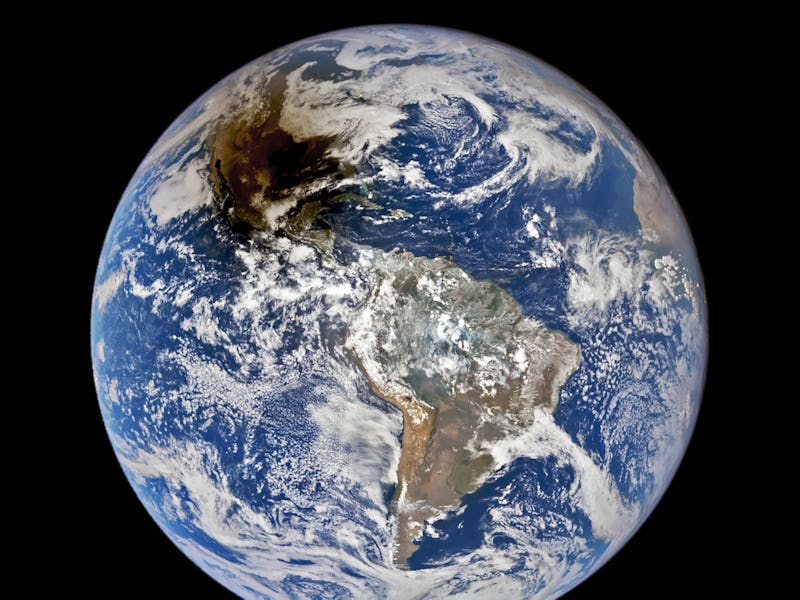A NASA Satellite Captured This Dramatic Image Of Earth During The Ring of Fire Eclipse
No eclipse glasses needed for this view.

By now, you’ve probably seen a lot of great photos of last weekend’s annular solar eclipse (and if you’re like us, you can never see too many). But this one, from a satellite hovering between Earth and the Sun, will show the eclipse as you probably haven’t seen it – from above.
NASA’s Deep Space Climate Observatory (DSCVR) satellite pointed its Earth Polychromatic Imaging Camera toward the southwestern U.S. just in time to see the Moon’s shadow passing over southeast Texas during the October 14 eclipse.
No, southeast Texas isn’t suffering a hyperlocal apocalypse; that’s the Moon’s shadow during the recent annular eclipse.
Taken at 11:58 AM Central Daylight Time, the image shows a patch of darkness across the Texas coast, near the city of Corpus Christi, while the rest of the U.S. is bathed in bright sunlight. That’s because the Moon happened to be passing exactly between the Sun and that little patch of Earth’s surface at the time. People on the ground probably saw something like this:
Behold the annular eclipse as seen from Panama on October 14.
And anyone looking down at Earth from the Moon during the eclipse might have seen something like this:
A crowd in Mexico City watches the October 14 annular eclipse. Note the eclipse glasses — these people are taking good care of their retinas!
During the recent eclipse, the Moon was at the farthest point in its orbit from Earth, about 253,000 miles away, which made it look slightly smaller than usual. When the Moon passed between us and the Sun, it didn’t block the entire Sun; instead, it left a bright ring with a dark shadow in the middle. This is called an annular, or ring of fire, eclipse.
This article was originally published on